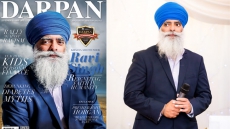Timing laps through a twisting obstacle course, they raced drones controlled by AI against world-class drone pilot Ken Loo.
An expert human pilot was successfully able to beat flying drones controlled by artificial intelligence (AI) systems in a race organised by NASA.
However, the AI-driven drones were more consistent in their performance, scientists said.
Drone racing is a high-speed sport demanding instinctive reflexes. Researchers at NASA's Jet Propulsion Laboratory (JPL) in the US put their work to the test recently.
Timing laps through a twisting obstacle course, they raced drones controlled by AI against world-class drone pilot Ken Loo.
The team built three custom drones - dubbed Batman, Joker and Nightwing - and developed the complex algorithms the drones needed to fly at high speeds while avoiding obstacles.
The drones were built to racing specifications and could easily go as fast as 129 kilometres per hour in a straight line.
However, on the obstacle course set up in a JPL warehouse, they could only fly at 48 to 64 kilometres per hour before they needed to apply the brakes.
"We pitted our algorithms against a human, who flies a lot more by feel," said Rob Reid of JPL, the project's task manager.
"You can actually see that the AI flies the drone smoothly around the course, whereas human pilots tend to accelerate aggressively, so their path is jerkier," Reid said.
Compared to Loo, the drones flew more cautiously but consistently. Their algorithms are still a work in progress.
For example, the drones sometimes moved so fast that motion blur caused them to lose track of their surroundings.
Loo attained higher speeds and was able to perform impressive aerial corkscrews. However, he was limited by exhaustion, something the AI-piloted drones did not have to deal with.
"This is definitely the densest track I've ever flown. One of my faults as a pilot is I get tired easily. When I get mentally fatigued, I start to get lost, even if I've flown the course 10 times," Loo said.
While the AI and human pilot started out with similar lap times, after dozens of laps, Loo learned the course and became more creative and nimble.
For the official laps, Loo averaged 11.1 seconds, compared to the autonomous drones, which averaged 13.9 seconds. However, the latter was more consistent overall.
While Loo's times varied more, the AI was able to fly the same racing line every lap.
Without a human pilot, autonomous drones typically rely on GPS to find their way around. That is not an option for indoor spaces like warehouses or dense urban areas. A similar challenge is faced by autonomous cars.
Camera-based localisation and mapping technologies have various potential applications, Reid added.
These technologies might allow drones to check on inventory in warehouses or assist search and rescue operations at disaster sites.
They might even be used eventually to help future robots navigate the corridors of a space station.





